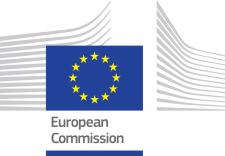
The European Commission (EC) has invoked the Temporary Protection Directive in order to offer quick and effective assistance in European countries to people fleeing the Russian invasion of Ukraine.
Those eligible for protection under the directive include Ukrainian nationals and residents and their family members, as well as non-Ukrainian nationals and stateless people legally residing in Ukraine who cannot return to their country or region of origin (such as asylum seekers or beneficiaries of international protection), and their family members, who have fled Ukraine since Russia began its military invasion on 24 February. Spain and Finland are additionally offering protection to those who fled shortly before this date.
The directive will:
- ensure the immediate protection and rights of those eligible, including residency rights, access to the labour market, access to housing, social welfare assistance, medical or other assistance, and means of subsistence. Unaccompanied children and teenagers have the right to legal guardianship and access to education;
- reduce pressure on national asylum systems by creating a protection status with reduced formalities. This will avoid overwhelming national asylum systems and allow EU countries to better manage new arrivals;
- enhance solidarity and responsibility sharing by promoting balance between EU countries in the effort to host new arrivals from Ukraine. A ‘solidarity platform', wherein countries can exchange information about reception capacity, is being coordinated by the EC;
- secure further support from EU agencies such as Frontex, the European Union Asylum Agency and Europol to carry out the activities included in the directive.
This temporary protection is to begin immediately in EU countries, for the duration of one year. It will be automatically extended twice by six monthly periods, for up to one year, if people continue to be displaced.
The directive does not apply to Denmark (due to its four opt-outs from European Union policies), nor to Norway, Lichtenstein, Switzerland and Iceland (as non-EU member states of Schengen). Iceland and Denmark have instead announced their own national protection plans: Iceland is granting collective protection to groups from a specific region, and Denmark introduced a new special law.
The European Commission's official guidelines on the implementation of the Temporary Protection Directive, published 21 March, can be found here.
This page was last updated on 23 March 2022.
Details
- Publication dates
- Geographic area
- EU Wide
- Source
- Posted by
